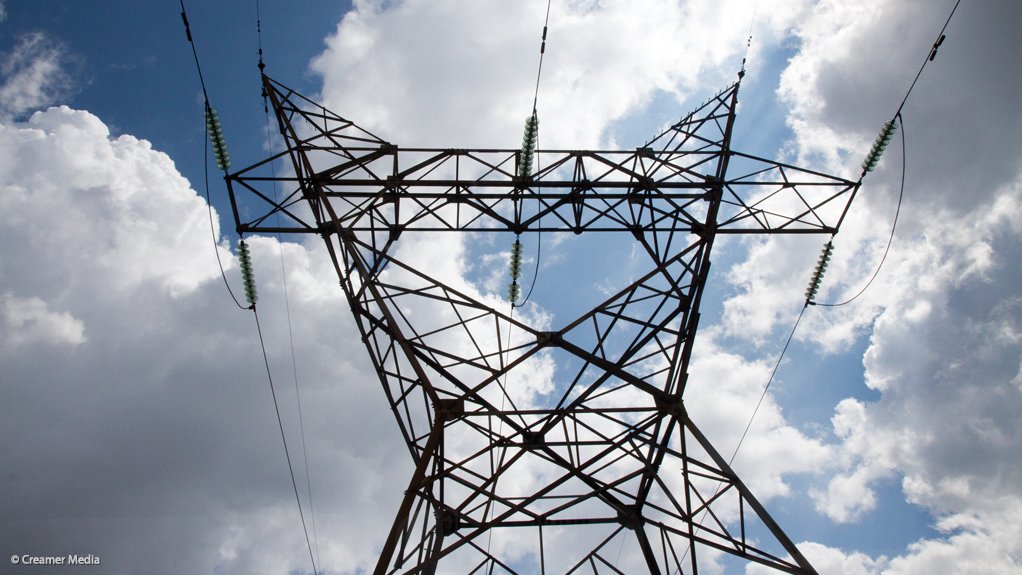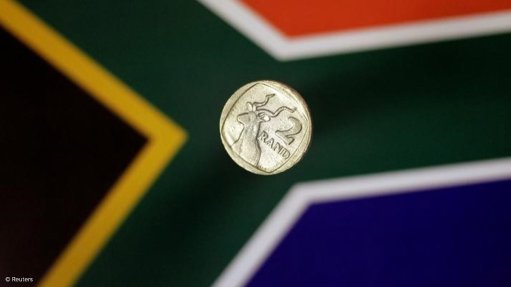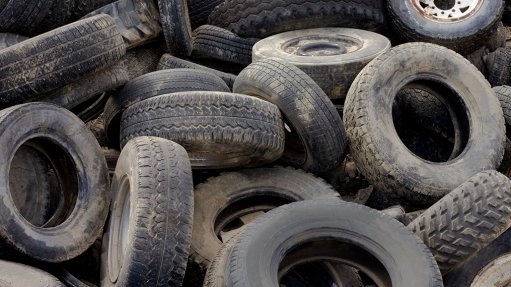Vodacom working with Eskom on virtual wheeling platform to enable firms with distributed demand to buy renewable power
Mobile telecoms company Vodacom has approach Eskom with a ‘virtual wheeling platform’ concept that the communications group believes could assist it and other companies with distributed electricity demand profiles to meet their decarbonisation goals, while also contributing to lowering the risk of loadshedding.
The proposed solution, an outline of which was presented by CEO Shameel Joosub during the 2023 edition of the South African Investment Conference in April, does not involve any specific new investments by either Eskom, Vodacom or potential participants.
Instead, its seeks to aggregate electricity consumed across different locations and reconcile that with aggregated renewable electricity produced by independent power producers (IPPs).
The concept itself emerged following a Vodacom assessment of the various options available to it for meeting its goal of transitioning to 100% renewable electricity by 2025.
The group, which continues to pursue various direct renewables projects, discovered several technical constraints to either converting fossil-fuel-based electricity supplies directly with on-site renewables that were difficult to scale, or doing so using a traditional wheeling framework.
It was convinced those limitations could be overcome using technology and approached Eskom in 2022, through its subsidiary Mezzanine, with a proposal to co-develop a virtual wheeling platform.
The concept, Vodacom’s stresses, is not new, as energy is traded in a similar way elsewhere in the world, including in the UK. However, it had to be adapted to South Africa’s specific conditions.
“Essentially energy produced from IPPs is aggregated and reconciled with the aggregated energy that is consumed at different locations or sites.
“Vodacom pays for all the energy that is produced by the IPPs and Eskom refunds Vodacom for all IPP-produced energy consumed, as aggregated across our footprint, using the Wholesale Energy Pricing System, or WEPS, time-of-use tariff (ToU) structure,” the company explains.
The wheeled energy refund would be based on a formula that calculates the lower of the offtakers’ active consumed energy or the wheeled (generated) energy, multiplied using the ToU structure at the Eskom Gen-Wheeling tariff and the refund would then be processed at the end of the calendar month.
“Vodacom benefits by having access to renewable electricity aligned with our renewable energy targets,” the company explains to Engineering News.
Eskom, meanwhile, gains access to off-balance sheet power that they can scale with relative ease as more companies or “tenants” join the platform.
“Naturally, there are risks, including the fact that, at this point, Eskom is not in a position to provide a refund to ‘tenants’ located within municipalities that are in default.
“As Vodacom’s estate is distributed across all municipalities in South Africa, this limits the ability to scale the solution to cover 100% of the Vodacom estate.”
Nevertheless, a ‘Virtual Wheeling Agreement’ has been developed by Eskom and is currently in the final stages of review.
Once it is signed-off, Vodacom will secure IPPs and, thereafter, the development of the solar and wind farms will begin, if not already in commission.
Given that the agreement is yet to be finalised, the solution has been tested using only static data.
“A dynamic test will follow once the agreement has been signed,” Vodacom tells Engineering News.
The group also believes that the platform could contribute to reducing loadshedding as it could unlock renewables capacity to help close the large prevailing supply/demand gap.
“This will take time, including the time needed for the IPPs to build new plants, and requires uptake by other businesses in South Africa.
“Vodacom has envisioned the solution, but the success of the solution as a mechanism to mitigate loadshedding is dependent on other businesses that follow.”
Article Enquiry
Email Article
Save Article
Feedback
To advertise email advertising@creamermedia.co.za or click here
Comments
Press Office
Announcements
What's On
Subscribe to improve your user experience...
Option 1 (equivalent of R125 a month):
Receive a weekly copy of Creamer Media's Engineering News & Mining Weekly magazine
(print copy for those in South Africa and e-magazine for those outside of South Africa)
Receive daily email newsletters
Access to full search results
Access archive of magazine back copies
Access to Projects in Progress
Access to ONE Research Report of your choice in PDF format
Option 2 (equivalent of R375 a month):
All benefits from Option 1
PLUS
Access to Creamer Media's Research Channel Africa for ALL Research Reports, in PDF format, on various industrial and mining sectors
including Electricity; Water; Energy Transition; Hydrogen; Roads, Rail and Ports; Coal; Gold; Platinum; Battery Metals; etc.
Already a subscriber?
Forgotten your password?
Receive weekly copy of Creamer Media's Engineering News & Mining Weekly magazine (print copy for those in South Africa and e-magazine for those outside of South Africa)
➕
Recieve daily email newsletters
➕
Access to full search results
➕
Access archive of magazine back copies
➕
Access to Projects in Progress
➕
Access to ONE Research Report of your choice in PDF format
RESEARCH CHANNEL AFRICA
R4500 (equivalent of R375 a month)
SUBSCRIBEAll benefits from Option 1
➕
Access to Creamer Media's Research Channel Africa for ALL Research Reports on various industrial and mining sectors, in PDF format, including on:
Electricity
➕
Water
➕
Energy Transition
➕
Hydrogen
➕
Roads, Rail and Ports
➕
Coal
➕
Gold
➕
Platinum
➕
Battery Metals
➕
etc.
Receive all benefits from Option 1 or Option 2 delivered to numerous people at your company
➕
Multiple User names and Passwords for simultaneous log-ins
➕
Intranet integration access to all in your organisation





















